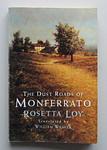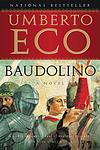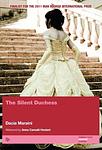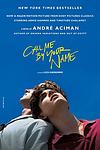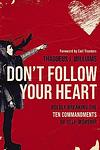The Greatest Italian Books Since 1980
Click to learn how this list is calculated.
This list represents a comprehensive and trusted collection of the greatest books. Developed through a specialized algorithm, it brings together 300 'best of' book lists to form a definitive guide to the world's most acclaimed books. For those interested in how these books are chosen, additional details can be found on the rankings page.
Genres
Countries
Date Range
Reading Statistics
Click the button below to see how many of these books you've read!
Download
If you're interested in downloading this list as a CSV file for use in a spreadsheet application, you can easily do so by clicking the button below. Please note that to ensure a manageable file size and faster download, the CSV will include details for only the first 500 books.
Download-
1. The Name of the Rose by Umberto Eco
Set in a wealthy Italian monastery in the 14th century, the novel follows a Franciscan friar and his young apprentice as they investigate a series of mysterious deaths within the monastery. As they navigate the labyrinthine library and decipher cryptic manuscripts, they uncover a complex plot involving forbidden books, secret societies, and the Inquisition. The novel is a blend of historical fiction, mystery, and philosophical exploration, delving into themes of truth, knowledge, and the power of the written word.
-
2. Foucault's Pendulum by Umberto Eco
This novel follows three intellectual friends who work at a small publishing house. As a joke, they start inventing a conspiracy theory about a secret society that has been manipulating world events for centuries. However, as they delve deeper into their own fabrication, they begin to lose sight of what's real and what's not. Their lives take a dangerous turn when actual secret societies believe they hold the key to a universal secret and will stop at nothing to obtain it.
-
3. If Not Now, When? by Primo Levi
This novel follows a band of Jewish partisans behind German lines during World War II. They are a diverse group from different countries and social backgrounds, all brought together by the common goal of sabotaging the Nazi war effort and surviving the Holocaust. The narrative explores their various experiences, the challenges they face, their acts of resistance, and their hopes for a future free from oppression. The title reflects the urgent necessity of their mission and their determination to fight back against their persecutors.
-
4. My Brilliant Friend by Elena Ferrante
This novel tells the story of two friends, Elena and Lila, growing up in a poor neighborhood in Naples, Italy in the 1950s. Their intense, complicated friendship is marked by competition, mutual respect, and deep affection. As they navigate the challenges of adolescence, including family drama, academic struggles, and romantic entanglements, their bond is tested and transformed. The narrative explores themes of female friendship, social class, education, and the struggle for personal autonomy in a patriarchal society.
-
5. Danube by Claudio Magris
This literary work is a rich tapestry that combines travelogue, history, and cultural analysis, following the journey of the river Danube from its sources in the heart of Europe to its delta at the Black Sea. As the narrative meanders through various countries, it delves into the complex history and diversity of the regions along the riverbanks, reflecting on the interplay of different cultures, languages, and peoples. The book is a contemplative exploration of the European spirit, examining the river as both a physical and metaphorical conduit through which ideas and influences have flowed, shaping the continent's past and present.
-
6. The Drowned and the Saved by Primo Levi
This book is a deeply moving exploration of the Holocaust, written by a survivor. It delves into the horrifying experiences at Auschwitz, examining the psychological impact on the prisoners, the brutal behavior of the guards, and the complex moral dilemmas faced by both. The author also discusses the concept of memory and its unreliability, especially in the context of such traumatic events, and analyzes the ways in which the Holocaust has been represented and remembered in society. The book serves as a profound meditation on the human condition under extreme circumstances.
-
7. Silk by Alessandro Baricco
"Silk" is a historical fiction novel that tells the story of a 19th-century French silkworm merchant who travels to Japan for business. During his travels, he becomes enamored with a mysterious woman. His unrequited love for her haunts him for the rest of his life, even as he returns to France and continues his life there. The novel explores themes of love, longing, and the profound impact that brief encounters can have on one's life.
-
8. The Marriage Of Cadmus And Harmony by Roberto Calasso
"The Marriage of Cadmus and Harmony" is a unique exploration of Greek mythology. The narrative follows the journey of Cadmus, a Phoenician prince, and his marriage to Harmony, a goddess. The book delves deep into the complex and rich tapestry of Greek myths, presenting them as a continuous and ever-evolving story. It offers fascinating insights into the gods, heroes, and monsters of ancient Greece, while also drawing connections to modern life and thought.
-
9. The Neapolitan Novels by Elena Ferrante
"The Neapolitan Novels" is a four-part series that explores the intricate and lifelong friendship between two women from Naples, Italy. The series spans several decades, beginning in the 1950s, and provides a detailed examination of the women's lives, struggles, and the societal pressures they face. The narrative delves into themes of identity, friendship, love, violence, and socio-political changes in post-war Italy. The series is known for its rich character development and vivid portrayal of female friendship.
-
10. Troubling Love by Elena Ferrante
This novel follows a woman who returns to Naples after her mother's mysterious death, determined to understand the enigmatic life her mother led. As she delves into her mother's past, she uncovers a web of secrets and discovers more about her own identity in the process. The narrative explores themes of mother-daughter relationships, identity, and the power of the past.
-
11. Pereira Maintains by Antonio Tabucchi
"Pereira Maintains" is a novel set in the backdrop of 1938 Portugal during the fascist dictatorship of Antonio de Oliveira Salazar. The narrative follows Pereira, a widowed, overweight editor of the culture section of a second-rate Lisbon newspaper, who becomes politically awakened after meeting a young anti-fascist. As he grapples with his conscience, he risks everything to help his new friend and his pregnant girlfriend escape to safety. The story is a compelling exploration of the struggle for moral integrity in a climate of political oppression.
-
12. The Future Of Democracy by Norberto Bobbio
In "The Future of Democracy," the author provides a critical examination of the concept and practice of democracy, exploring its historical evolution, inherent challenges, and potential future. The work delves into the tension between the ideals of democracy and the practical realities of governing, addressing issues such as the role of political parties, the influence of public opinion, and the impact of economic inequalities. The author argues for the necessity of continuous democratic reform and the importance of safeguarding democratic principles in the face of changing social and political landscapes, ultimately presenting a thoughtful reflection on the prospects and resilience of democratic systems in the modern world.
-
13. I'm Not Scared by Niccolò Ammaniti
Set in a small Italian village during the scorching summer of 1978, this novel tells the story of a 9-year-old boy who discovers a horrific crime being hidden by the adults in his community. The boy, while exploring an abandoned farmhouse, stumbles upon a young boy being held captive in a hole. As he tries to help the captive boy, he is forced to face the moral complexities of his world and the terrifying realization that his own father might be involved in this cruel act. The story is a poignant exploration of innocence, friendship and the loss thereof, and the harsh realities of adulthood.
-
14. The Dust Roads Of Monferrato by Rosetta Loy
Set against the backdrop of rural Italy, the novel weaves a rich tapestry of family saga and historical transformation. It follows the lives of several generations of a family in the Monferrato region, as they navigate the tumultuous changes of the 20th century. Through wars, social upheaval, and personal trials, the characters' stories intertwine with the dusty roads of their homeland, painting a vivid portrait of a community bound by tradition yet facing the inevitable march of progress. The narrative delves into themes of memory, identity, and the enduring impact of the past on the present, all while celebrating the beauty and resilience of the Italian countryside.
-
15. Baudolino by Umberto Eco
Set in the 12th century, the novel follows Baudolino, a self-proclaimed liar and adventurer, as he travels from his home in Italy to the mythical kingdom of Prester John. Along the way, he becomes embroiled in a series of political and religious intrigues, meets a variety of fantastical creatures, and tells a series of increasingly elaborate lies. The narrative is framed as a story Baudolino is telling to a Byzantine historian, adding another layer of unreliability to his already questionable narrative.
-
16. The Silent Duchess by Dacia Maraini
This novel is a poignant exploration of the life of an 18th-century Sicilian noblewoman, born into privilege yet silenced by a congenital disability. Through her eyes, readers experience the constraints and expectations placed on women of her time, navigating a world where her voice is metaphorically and literally stifed. Despite the limitations imposed by her society and her own family, she embarks on a journey of self-discovery and defiance, seeking love, intellectual fulfillment, and a sense of identity within the opulent yet oppressive confines of her aristocratic life. The narrative delves into themes of power, gender, and the quest for personal freedom, painting a vivid picture of historical Sicily and the resilience of the human spirit.
-
17. Call Me By Your Name by André Aciman
The novel is a poignant exploration of desire, passion, and the confusion of young love, set during a sun-drenched summer on the Italian Riviera. It follows the blossoming romantic relationship between a precocious 17-year-old boy and a visiting 24-year-old American scholar staying at his parents' villa. As they bond over literature, music, and the languid Italian landscape, their intimacy grows, leading to a deep and transformative affair that will leave an indelible mark on their lives. The story delves into the complexities of emotions and the heartache of remembering a once-in-a-lifetime connection that both defines and haunts them.
-
18. Follow Your Heart by Susanna Tamaro
"Follow Your Heart" is a poignant epistolary novel that delves into the themes of self-discovery, family secrets, and the unbreakable bonds between generations. The story unfolds through a series of letters written by an elderly Italian woman to her granddaughter, who has moved to America. In these letters, she shares her life's wisdom, reflects on her past experiences, and reveals long-held secrets. The narrative explores the choices she made, the consequences of those choices, and the lessons she learned along the way. It is a heartfelt meditation on love, loss, and the importance of following one's own heart in the face of societal expectations and personal doubts.
-
19. Crossing The Threshold Of Hope by Pope John Paul II
In "Crossing the Threshold of Hope," the author provides a profound exploration of his faith and addresses complex theological and philosophical questions about Christianity. Through a series of letters, he discusses the nature of faith, the existence of God, the role of the Church, and the challenges of contemporary moral issues. This book offers insights into his personal beliefs and provides guidance on how individuals can find hope and meaning in their lives through spiritual commitment and religious understanding.
-
20. Ocean Sea by Alessandro Baricco
In this lyrical and atmospheric novel, the lives of several characters converge at a remote seaside inn, where the ocean serves as a backdrop to their intertwined stories. The narrative weaves together the tales of a cast that includes a grieving widower, a troubled artist, and a mysterious woman, among others, each drawn to the sea for different reasons. The sea itself becomes a central character, representing the vast and unknowable depths of human emotion and experience. Through poetic prose and philosophical musings, the novel explores themes of love, loss, and the eternal quest for meaning in a world that is both beautiful and cruel.
-
21. Novecento by Alessandro Baricco
The book is a poignant monologue that tells the story of a gifted pianist born on a transatlantic liner in the early 20th century. Abandoned at birth, he is named after the year of his birth and grows up on the ship, never setting foot on land. His extraordinary talent for piano captivates everyone who hears him play, and his music becomes legendary among travelers and crew alike. The narrative, recounted by a fellow musician and friend, explores themes of belonging, the meaning of home, and the transcendent power of music to connect people across the boundaries of time and space.
-
22. City: A Novel by Alessandro Baricco
"City: A Novel" unfolds as a multi-layered narrative that weaves together the lives of various characters, including a precocious child prodigy, a boxer, and a soldier, all residing in an unnamed, dreamlike metropolis. The novel explores themes of isolation, the search for meaning, and the intersection of reality and imagination. Through a series of interconnected stories and a blend of genres, the book creates a tapestry of human experience, reflecting on the nature of cities as spaces where diverse lives converge and the extraordinary can emerge from the mundane.
-
23. Mr. Palomar by Italo Calvino
The book is a contemplative exploration of the world through the eyes of the titular character, Mr. Palomar, who seeks to understand the complexities of existence through meticulous observation and reflection on seemingly mundane subjects. From watching waves on a beach to contemplating a cheese shop, his attempts to impose order and rationality on his experiences often lead to more philosophical inquiries and existential musings. Through these vignettes, the narrative delves into themes of human perception, the nature of knowledge, and the interplay between the observer and the observed, all conveyed with a blend of humor, irony, and poignant insight.
-
24. Seven Brief Lessons on Physics by Carlo Rovelli
This book is a succinct and enlightening introduction to the fundamental concepts of modern physics, presented in seven easy-to-understand lessons. The lessons cover topics such as general relativity, quantum mechanics, the architecture of the cosmos, particles, quantum gravity, probability, time, and the human perspective on these scientific wonders. The book aims to bridge the gap between the complex world of modern physics and the general public's understanding, making the often intimidating subject accessible and engaging for all readers.
-
25. Journey To The Land Of Flies And Other Travels by Aldo Buzzi
This book is a collection of travel essays that take readers on a whimsical and insightful journey through various parts of the world. The author, with a keen eye for detail and a taste for the eccentric, shares his experiences and observations from his travels, ranging from the titular land of flies to the bustling streets of New York and the serene landscapes of Europe. His writing is infused with a mix of humor, reflection, and a deep appreciation for the cultures and cuisines he encounters, making this work a delightful read for those who enjoy literary travelogues and the exploration of foreign places through the eyes of a perceptive and thoughtful wanderer.
Reading Statistics
Click the button below to see how many of these books you've read!
Download
If you're interested in downloading this list as a CSV file for use in a spreadsheet application, you can easily do so by clicking the button below. Please note that to ensure a manageable file size and faster download, the CSV will include details for only the first 500 books.
Download












